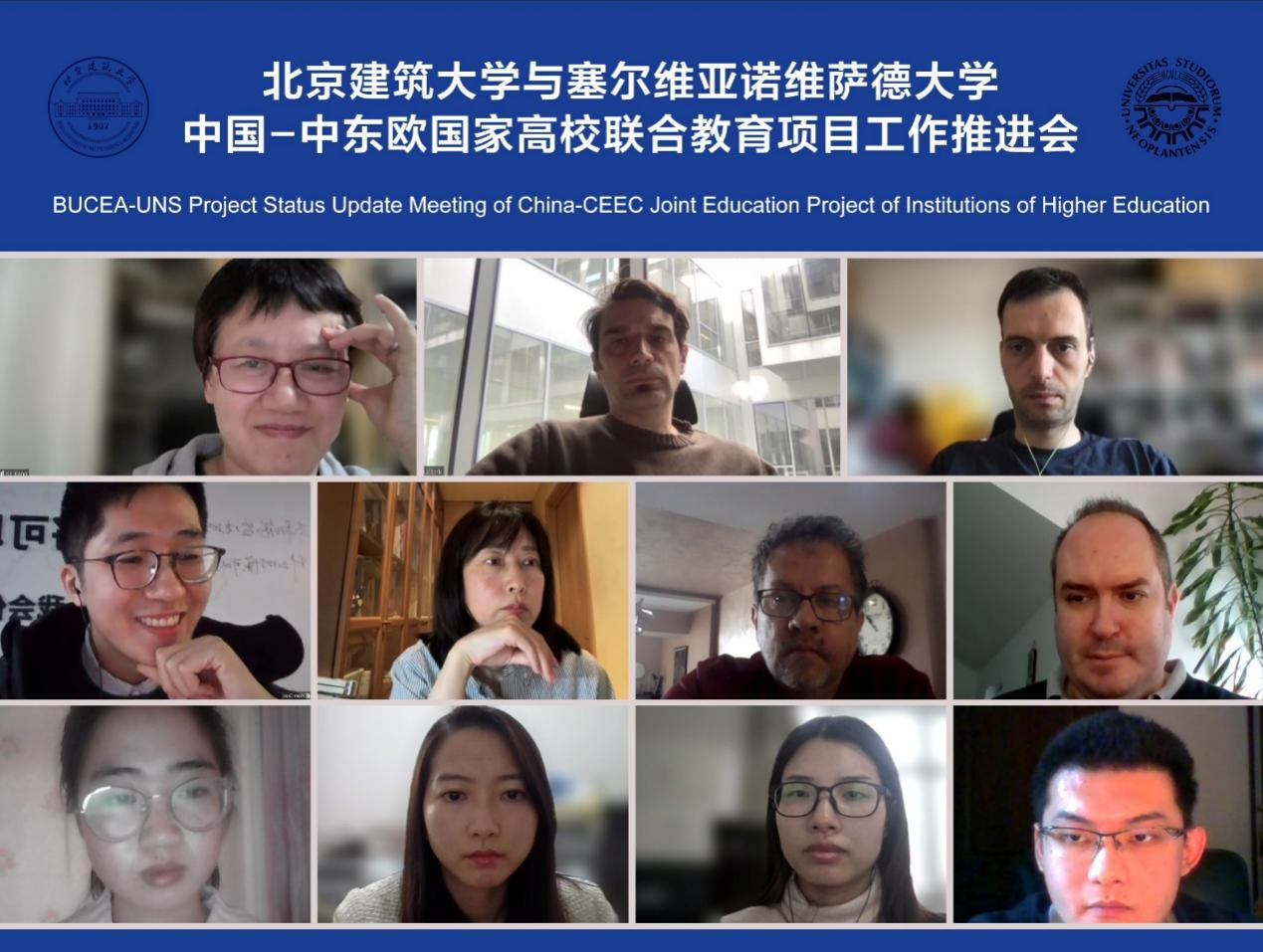On February 24, Beijing University of Civil Engineering and Architecture (BUCEA) and the University of Novi Sad (UNS), Serbia held a project status update meeting of China - Central and Eastern European Countries (CEEC) Joint Education Project of Institutions of Higher Education. Relevant faculty, staff and students from the International Development Research Institute (School of International Education), the School of Geomatics and Urban Spatial Informatics of BUCEA, and the Faculty of Technical Sciences of UNS attended the meeting, which was presided over by JIANG Jie, Executive Dean of the International Development Research Institute and also the project leader.

JIANG Jie reviewed the updates and assessment requirements of the project “Ecological Environment Monitoring to Urban Areas along China-Europe Railway Based on Remote Sensing and Artificial Intelligence” and made detailed arrangements for the following work.
Both sides exchanged the research progress centering around the Project. GUO Xian, a teacher of the School of Geomatics and Urban Spatial Informatics of BUCEA, took the lead in designing multiple sets of ecological indicators and models to monitor and comprehensively evaluate the ecological environment changes in the countries along the China-Europe rail. WU Qiaoli, a postdoctoral research fellow of the School of Geomatics and Urban Spatial Informatics, introduced the spatial and temporal changes of the total Gross Primary Production of vegetation in Europe and its response to climate change based on quantitative analysis of remote sensing. Prof. Dubravko Ćulibrk, Head of Department of Industrial Engineering and Management of the Faculty of Technical Sciences of UNS, introduced the methods of environmental monitoring based on deep learning of remote sensing images. The two sides have jointly written 2 academic papers, one of which has been published and the other one of which has been submitted for publication soon. DING Shuai, Deputy Dean of the International Development Research Institute of BUCEA introduced the cooperation and exchange activities between the two universities in 2021, and the major work plan for international development of BUCEA in 2022.
The participants had an in-depth discussion on the follow-up joint research. Both sides agreed to organize thematic academic modules during the International High-level Forum on Urban Geoinformatics (Urban Geoinformatics 2022) & Geo-information for Disaster management (Gi4DM 2022) to be hosted by BUCEA in November, 2022. The two universities will further cooperate with the remote sensing resources and software platforms based on the national key R&D program “International Application of GEO Remote Sensing” and launch the preparatory work of joint innovation laboratories. BUCEA also invited the faculty and students from UNS to participate in the 2022 Belt and Road International Student Competition on Digital Architectural Design and the Global Campus Exchange Program for Summer Schools.
The China-CEEC Joint Education Project of Institutions of Higher Education, based on China-CEEC Higher Education Institutions Consortium, aims to further strengthen the cooperation and exchange between China and Central and Eastern European countries (CEECs) in different fields of higher education, especially in scientific research cooperation, academic exchanges, curriculum development and joint laboratories through mutual learning and win-win cooperation. In addition, this Project implements the spirit of The Dubrovnik Guidelines for Cooperation between China and Central and Eastern European Countries . In 2020, 98 universities and educational institutions applied for this Project, and 33 projects from 29 universities have been awarded the “2020 China-CEEC Joint Education Project of Institutions of Higher Education” after expert evaluation. Among them, a project jointly declared by BUCEA and UNS is one of the only 6 “priority projects” in China.
